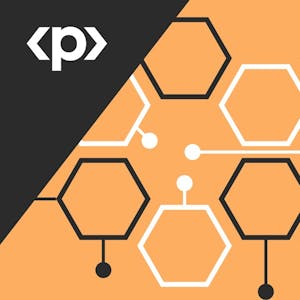Continuous Integration
About this Course
In today\'s world, software development is highly complex and often has large teams of developers working on small pieces of a larger software project. This course will go over the basic principles of using a continuous integration system effectively to constantly improve software. We\'re going to describe the different stations of continuous test, build, integration and deploy processes required for DevOps practices and apply best practices for quality software management, and tooling to accomplish iterative software build & test processes. You will be able to create an automated job for continuous build, test, integrate, and deploy with Travis CI and use branching and project workflows to enhance the quality, speed and feedback loops for your software assets. We\'ll describe the attributes of Deterministic Builds and how they are applied within the CI pipeline and use the Continuous Integration data and analytics to measure and improve the health of your software assets. Automation at scale is now more achievable for software development teams, as continuous integration makes it possible.Created by: University of California, Davis

Related Online Courses
Welcome to Cluster Analysis, Association Mining, and Model Evaluation. In this course we will begin with an exploration of cluster analysis and segmentation, and discuss how techniques such as... more
This specialization is intended for persons involved in machine learning who are interested in medical applications, or vice versa, medical professionals who are interested in the methods modern... more
This course will introduce you to Life Cycle Assessment (LCA ) methodology, a tool to assess the environmental impact of products and systems over the whole product life cycle, from cradle to... more
We will begin this guided project by understanding what Hubspot is. We will explore the contacts, conversation, marketing, sales & service sections of Hubspot. Then we will integrate Hubspot with... more
This course begins by setting up Anaconda and Jupyter Lab for Python and Pandas, providing foundational Python knowledge before diving into Pandas for data analysis. You\'ll learn Series and... more







